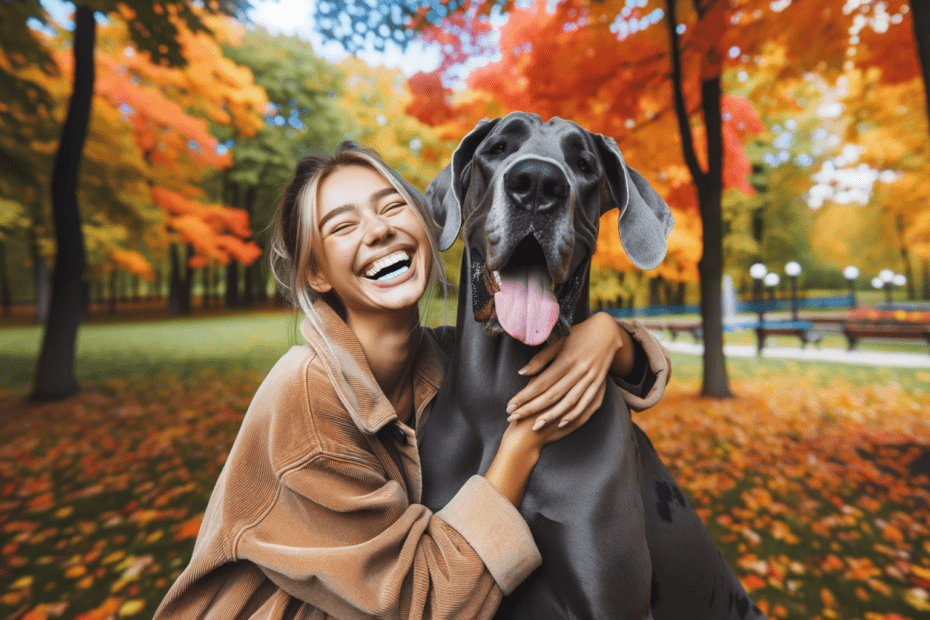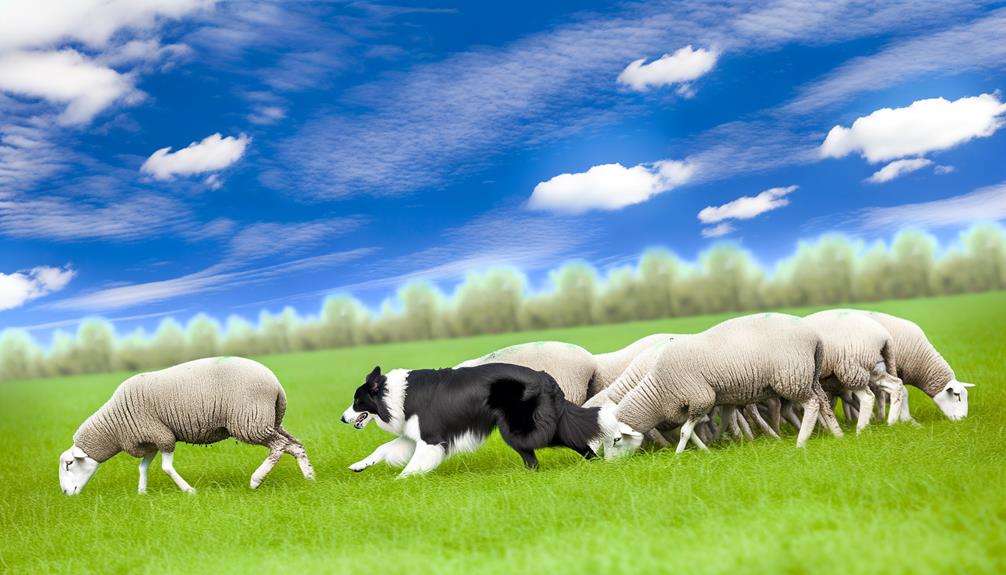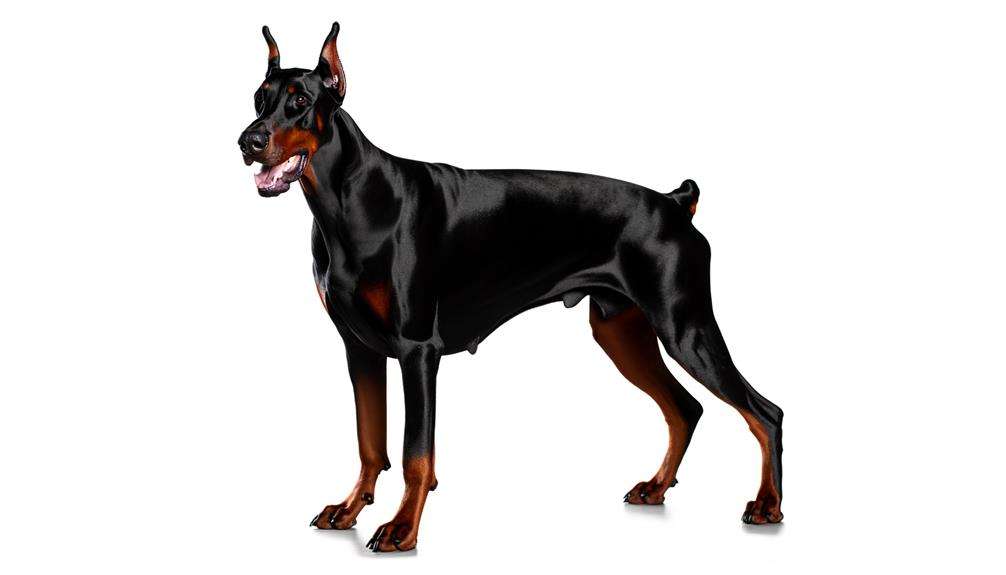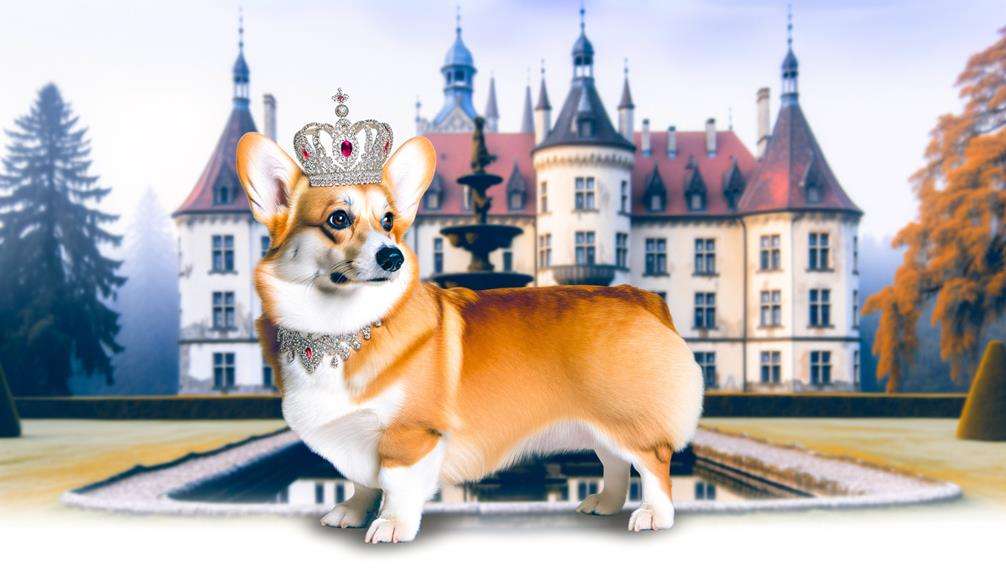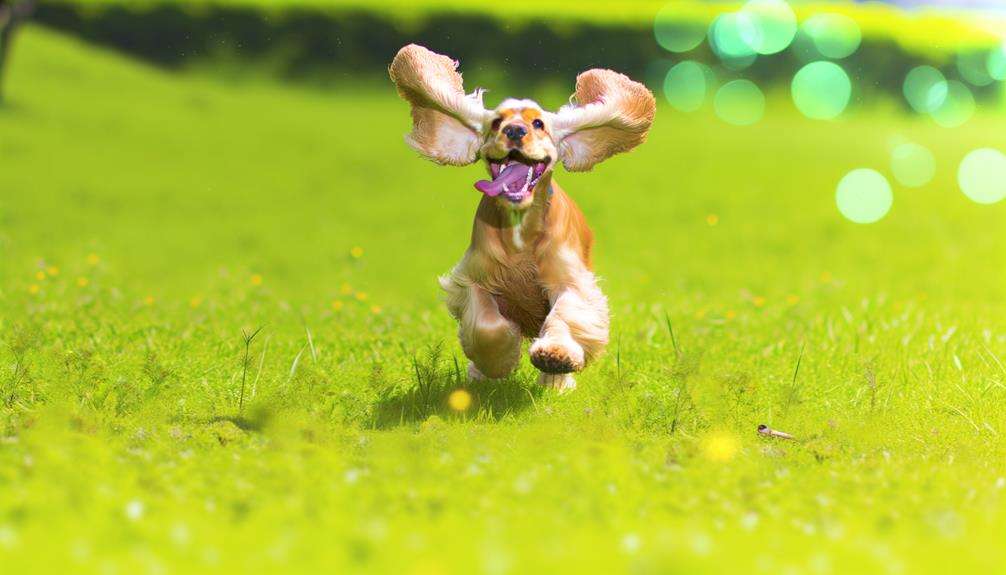Looking for a big furry friend to join your family? You might be surprised to learn that there are large dog breeds that are perfect for beginners like you! With their friendly nature and easy-going personalities, breeds like the Golden Retriever, Labrador Retriever, and Bernese Mountain Dog make excellent companions.
Don't shy away from their size – these gentle giants are surprisingly gentle and adaptable. Get ready to embrace the love and loyalty of a large dog that's perfect for you!
Key Takeaways
- Golden Retrievers and Labrador Retrievers are friendly, intelligent, and adaptable breeds that are great for beginners.
- Bernese Mountain Dogs and Great Danes are gentle giants with friendly natures and moderate exercise requirements.
- Boxers are energetic and playful breeds that require physical and mental stimulation.
- Newfoundland and Irish Wolfhounds are calm and patient breeds that require socialization, exercise, and grooming.
Golden Retriever
If you're a beginner looking for a large dog breed, you can't go wrong with a Golden Retriever. These friendly and intelligent dogs are known for their loyalty and gentle nature, making them an excellent choice for families and individuals alike.
When it comes to training, Golden Retrievers are eager to please and quick learners. Start their training early, using positive reinforcement techniques such as treats and praise. Consistency and patience are key, as these dogs can sometimes be a bit stubborn. With proper training and socialization, your Golden Retriever will become a well-behaved and obedient companion.
In terms of health concerns, Golden Retrievers are generally a healthy breed. However, they're prone to certain conditions such as hip dysplasia, which is a common issue in larger dogs. Regular exercise, a balanced diet, and routine vet check-ups can help prevent and manage these health concerns. It's also important to keep an eye on their weight, as obesity can lead to various health issues.
Labrador Retriever
When choosing a large dog breed as a beginner, you can't go wrong with a Labrador Retriever. Labrador Retrievers are one of the most popular and adaptable dog breeds, making them an excellent choice for first-time dog owners. Their friendly and outgoing nature makes them great companions for individuals and families alike.
Labrador Retrievers are known for their intelligence and willingness to please, which makes them highly trainable. Whether you want to teach them basic obedience commands or more advanced tricks, Labrador Retrievers are eager to learn and please their owners. Their natural retrieving instincts also make them excellent candidates for activities like agility training and retrieving games.
In addition to being trainable, Labrador Retrievers are also highly obedient. They're known for their ability to follow commands and respond well to positive reinforcement techniques. With consistent training and proper socialization, Labrador Retrievers can become well-behaved members of the family.
Labrador Retrievers are also adaptable to various living situations. Whether you live in a small apartment or a spacious house, they can easily adjust to different environments. However, it's important to note that Labrador Retrievers are an active breed and require regular exercise to keep them physically and mentally stimulated.
Bernese Mountain Dog
Consider the Bernese Mountain Dog as a perfect large dog breed for beginners. This majestic and gentle giant is known for its friendly nature and loyalty. When it comes to exercise requirements, the Bernese Mountain Dog does need regular physical activity, but it doesn't require excessive exercise like some other large breeds. Daily walks and playtime in a secure yard will help keep your furry friend happy and healthy.
Training a Bernese Mountain Dog can be a rewarding experience. They're intelligent dogs and tend to be eager to please their owners. However, they can also be independent thinkers, so patience and consistency are key. Start training early and be sure to use positive reinforcement techniques such as treats and praise. Socialization is also crucial for this breed, as they can be reserved around strangers.
Keep in mind that Bernese Mountain Dogs have a thick double coat that requires regular grooming. Brushing their fur at least once a week will help prevent matting and keep their coat looking its best.
With their friendly and gentle nature, moderate exercise requirements, and willingness to learn, the Bernese Mountain Dog is an excellent choice for beginner dog owners. They'll quickly become a beloved member of your family.
Great Dane
The Great Dane is another surprising large dog breed that's perfect for beginners due to its gentle and friendly nature. When it comes to Great Dane training, consistency and positive reinforcement are key. These intelligent dogs respond well to reward-based training methods, so be sure to use treats and praise to motivate them. Start training early to establish good behaviors and boundaries, as Great Danes can grow quite large and strong.
In terms of health issues, Great Danes are prone to certain conditions that owners should be aware of. One common issue is bloat, a potentially life-threatening condition where the stomach twists, causing gas and food to become trapped. It's important to feed them smaller, frequent meals and avoid vigorous exercise immediately after eating.
Great Danes are also susceptible to hip dysplasia, a genetic condition that affects the hip joints and can cause pain and mobility issues. Regular exercise and maintaining a healthy weight can help reduce the risk of hip dysplasia.
Boxer
With their playful and energetic nature, Boxers are another surprising large dog breed that's perfect for beginners. Boxers are known for their strong physique, loyalty, and intelligence, making them great companions for individuals or families.
When it comes to training techniques, Boxers respond well to positive reinforcement. They're eager to please and enjoy learning new commands and tricks. Consistency and patience are key when training a Boxer, as they can be stubborn at times. It's important to establish yourself as the pack leader and set clear boundaries from the beginning.
Health considerations for Boxers include their predisposition to certain conditions such as hip dysplasia and heart problems. Regular exercise, a balanced diet, and routine veterinary check-ups are essential for maintaining their overall health and well-being.
Boxers thrive in an environment where they can receive plenty of physical and mental stimulation. Daily walks, interactive play sessions, and puzzle toys are great ways to keep them mentally and physically active.
With the right training techniques and proper care, Boxers can make excellent companions for beginners.
Newfoundland
Moving on to another surprising large dog breed perfect for beginners, let's talk about the Newfoundland. This gentle giant is known for its calm and patient demeanor, making it an ideal choice for novice dog owners. Here are some training tips and health considerations to keep in mind when bringing a Newfoundland into your home:
- Socialization is key: Start socializing your Newfoundland puppy from an early age to ensure they grow up to be well-rounded and friendly dogs. Introduce them to various people, animals, and environments to help them become confident and adaptable.
- Consistent training: Newfoundland dogs are intelligent and eager to please, but they can be stubborn at times. Use positive reinforcement techniques, such as treats and praise, to motivate them during training sessions. Be patient, consistent, and firm to establish boundaries and reinforce good behavior.
- Exercise and weight management: Despite their large size, Newfoundlands aren't overly active dogs. However, they still require daily exercise to keep them physically and mentally stimulated. Regular walks and moderate play sessions are usually sufficient. Pay attention to their weight as Newfoundlands are prone to obesity, which can lead to joint problems.
- Health screenings: Due to their size, Newfoundlands are prone to certain health issues such as hip dysplasia, heart problems, and bloat. Regular veterinary check-ups and screenings are crucial to catch any potential problems early on and ensure your Newfoundland stays happy and healthy.
Irish Wolfhound
When it comes to size and temperament traits, the Irish Wolfhound is a gentle giant. With their calm and friendly demeanor, they make excellent companions for beginners.
In terms of exercise and activity needs, these dogs require regular exercise to stay healthy and happy.
Lastly, grooming and maintenance requirements for Irish Wolfhounds are minimal, making them a low-maintenance choice for those new to large dog breeds.
Size and Temperament Traits
As a beginner, you'll find the Irish Wolfhound's impressive size and gentle temperament to be particularly appealing. Here are the key size and temperament traits of this amazing breed:
- Massive presence: The Irish Wolfhound stands tall, reaching heights of up to 32 inches at the shoulder. Their imposing size commands attention and admiration, making them a sight to behold.
- Gentle giants: Despite their size, Irish Wolfhounds have a remarkably gentle and calm temperament. They're known for their kind and patient nature, making them excellent companions for families, including those with children.
- Affectionate and loyal: These gentle giants are incredibly affectionate and form strong bonds with their human companions. They thrive on love and attention, and their loyalty knows no bounds.
- Moderate exercise needs: While Irish Wolfhounds are large, they're surprisingly moderate in their exercise requirements. They enjoy daily walks and playtime, but they aren't excessively energetic, making them suitable for owners with varying activity levels.
The combination of size, temperament, and exercise needs makes the Irish Wolfhound an ideal choice for beginners seeking a loving and majestic canine companion.
Exercise and Activity Needs
To meet the exercise and activity needs of an Irish Wolfhound, you'll need to provide them with regular physical stimulation and mental enrichment. Despite their large size, Irish Wolfhounds are surprisingly gentle and calm. However, they still require daily exercise to keep them healthy and happy.
A long walk or jog, preferably in a safe and secure area, is necessary to fulfill their exercise requirements. Additionally, Irish Wolfhounds benefit from off-leash playtime in a fenced yard or a spacious, open area. These dogs have a natural instinct to chase, so engaging them in activities like fetch or agility training can help keep them mentally stimulated.
Socialization and training requirements are equally important for Irish Wolfhounds. Early socialization with other animals and people is crucial to prevent any potential aggression or fearfulness. Consistent training is also essential to ensure they become well-behaved companions.
Grooming and Maintenance Requirements
Meeting the grooming and maintenance requirements of an Irish Wolfhound is crucial to ensure their health and well-being. These gentle giants have a thick, wiry coat that requires regular care and attention. Here are some grooming tips for large dog breeds, specifically for maintaining a healthy coat for big dogs like the Irish Wolfhound:
- Brush their coat at least once a week to remove any tangles or mats.
- Use a slicker brush or comb to reach the undercoat and remove loose hairs.
- Bathe them every two to three months with a gentle dog shampoo.
- Trim their nails regularly to prevent them from becoming too long and causing discomfort.
Saint Bernard
Discover why a Saint Bernard can be an ideal choice for first-time dog owners looking for a large breed companion. The Saint Bernard is a gentle giant known for its friendly and affectionate nature. Despite their large size, they're incredibly patient and tolerant, making them great companions for families and individuals alike.
One of the key considerations for first-time owners is the training techniques needed for a Saint Bernard. These dogs are intelligent and eager to please, making them relatively easy to train. Positive reinforcement methods, such as rewards and praise, work well with Saint Bernards. Consistency and patience are crucial when teaching them basic commands and socialization skills.
When it comes to health concerns, Saint Bernards are prone to certain conditions due to their size. The most common health issue for this breed is hip and elbow dysplasia, a condition where the joints don't develop properly. Regular exercise and maintaining a healthy weight can help minimize the risk of these issues. Additionally, Saint Bernards are also prone to bloat, a potentially life-threatening condition that requires immediate veterinary attention.
Frequently Asked Questions
Are Large Dog Breeds Suitable for Families With Small Children?
Large dog breeds can be suitable for families with small children. They provide many benefits such as companionship and protection. To safely introduce a large dog breed, ensure proper training and supervision to create a harmonious environment for everyone.
Do Large Dog Breeds Require a Lot of Exercise?
Large dog breeds require a lot of exercise to keep them mentally and physically stimulated. If you have limited space, try incorporating interactive toys and mental exercises to help manage their exercise needs.
How Do I Choose the Right Large Dog Breed for My Lifestyle?
When choosing a large dog breed for your lifestyle, consider factors like exercise needs, space requirements, and temperament. You can also adapt large breeds to apartment living with proper training, mental stimulation, and regular exercise.
Are Large Dog Breeds Prone to Any Specific Health Issues?
Large dog breeds can be prone to specific health issues, such as hip dysplasia or obesity. It's important to prioritize weight management through proper exercise and a balanced diet to help prevent these potential health issues.
What Are Some Common Misconceptions About Owning a Large Dog Breed?
Owning a large dog breed may seem daunting, but don't let misconceptions hold you back. Let's debunk them and give you tips for being a first-time owner. You got this!
Conclusion
So there you have it, a list of surprising large dog breeds that are perfect for beginners.
Whether you're looking for a loyal and friendly companion like the Golden Retriever or Labrador Retriever, or a gentle giant like the Bernese Mountain Dog or Newfoundland, these breeds are sure to bring joy and love into your life.
Don't be intimidated by their size, as these dogs are known for their gentle and easygoing nature.
So go ahead, take the leap and welcome one of these amazing large breeds into your home!
